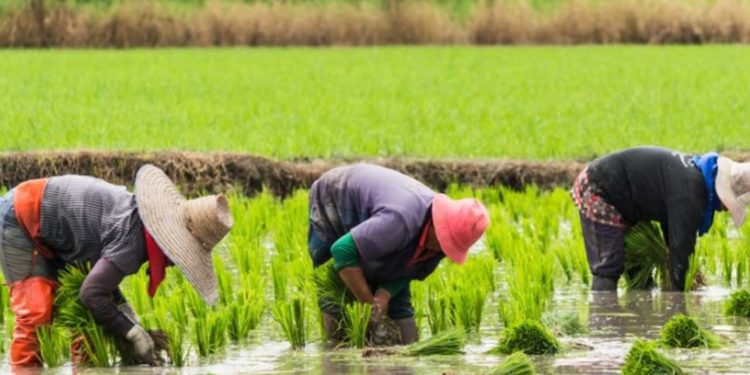Nigeria has grown its rice production from 1.5 metric tonnes per hectare to around eight metric tonnes per hectare in the space of four years.
This, according to the governor of the Central Bank of Nigeria(CBN), Godwin Emefiele was due to the impact of the Anchor Borrowers Programme in the agricultural sector.
Speaking at Business and Investment forum organised by the Nigerian embassy in The Netherlands, Emefiele noted that, with the Anchor Borrowers Programme, Nigeria had been transformed from the largest importer of rice to self sustaining.
“When the Buhari administration came on board, Nigeria was the largest rice importing nation in the world and just within four years of us starting the programme in 2015, Nigeria today is producing rice to sustain itself. We are not importing rice, we blocked avenues through which rice is imported into the country and gave support to our smallholder farmers.
Rice production, he said, increased from 1.5 metric tonnes per hectare to about 6.57 and some 8 metric tonnes per hectare “because we made sure that we gave high yield seeds to farmers we made sure we gave fertiliser to farmers not the era where people were piling sand and ashes as fertiliser. We made sure we gave support to companies that can produce urea which is the main component for fertilizers.”
In her welcome address at the forum themed ‘The Land is Green: Exploring Business and Investment Opportunities in Nigeria,’ the Nigerian Ambassador to The Netherlands, Dr Eniola Ajayi noted that, the forum is geared towards showcasing the fact that Nigeria is worth every investment.
Ajayi noted that, with population of over 230 million people, “everything sells in Nigeria. Nigeria being the heart of Africa makes Nigeria the natural connector to other parts of Africa. With the Africa Continental Free Trade Agreement (AfCFTA), the opportunities are limitless within the Continent.
To him, “although Netherlands is the number four trading partner of Nigeria in the world and number one in Europe, I am sure you will agree with me that there is still much room for growth. There are a lot more grounds to cover especially in the area of non-oil sectors of Nigeria. Nigeria has a land space of 923,769 square kilometres and a very youthful population with an average age of 18.5 years. I know you will agree that the potential for investment is limitless.”



